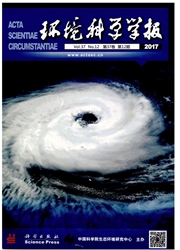

 中文摘要:
中文摘要:
为客观、准确地评价水质状况,从而为水污染防治和水资源合理开发利用提供科学指导,根据最小二乘支持向量机(LS-SVM)的基本原理,引入其分类算法构建太湖流域的水质评价模型,以太湖流域5个重点断面为研究对象,通过对已知训练样本进行学习训练,对测试样本的水质等级进行评价,并将其结果与BP神经网络、判别分析法相比较。结果表明,LS-SVM在太湖流域水质评价方面有着更出色的效果,可为太湖流域水资源管理提供新的参考方法。
 英文摘要:
英文摘要:
In order to achieve an objective and accurate assessment of water quality and provide a scientific guid- ance to water pollution prevention and rational utilization of water resources, a model based on LS-SVM was con- structed to evaluate the Taihu Lake Basin's water quality, Five monitoring sections in the Taihu Lake Basin were taken as examples. The LS-SVM models were established with the samples which water quality grades were already known, then water quality of testing samples were evaluated by using the well trained LS-SVM models. Further- more, the Back-Propagation Neural Network (BPNN) and Discriminant Analysis were also used with the same tes- ting samples to testify the method's efficiency and accuracy. The results comparison of three methods showed that the LS-SVM method presented in this paper performed much better than BPNN and Discriminant Analysis Method in the water quality assessment of the Taihu Lake Basin. In conclusion, the LS-SVM might be a new reference method for the Taihu Lake Basin's water resources management.
 同期刊论文项目
同期刊论文项目
 同项目期刊论文
同项目期刊论文
 期刊信息
期刊信息
